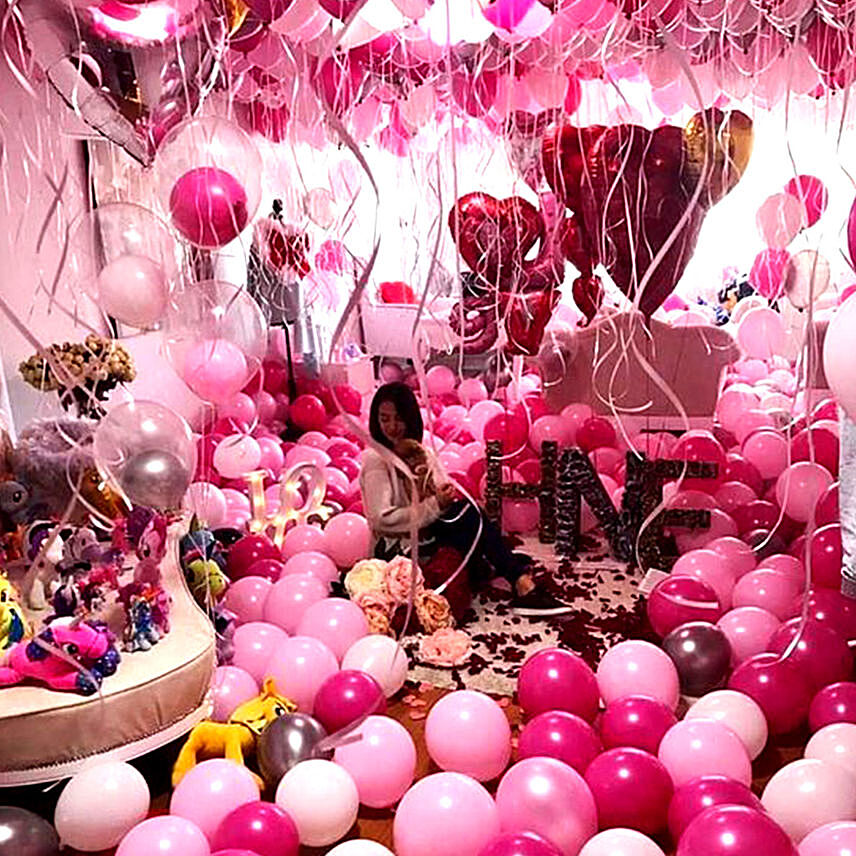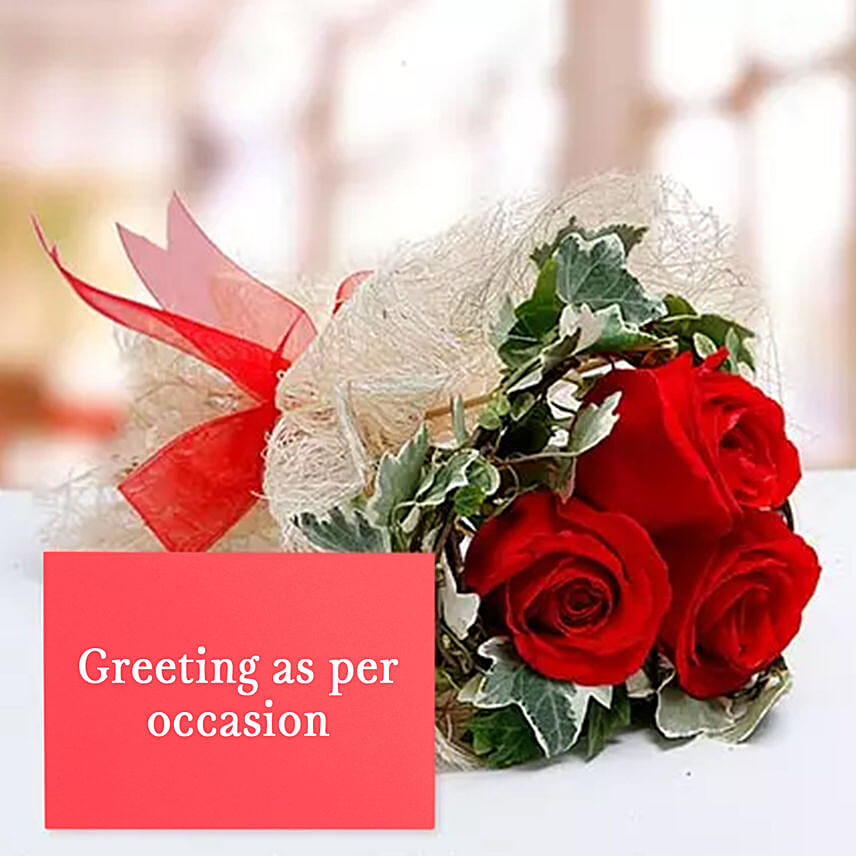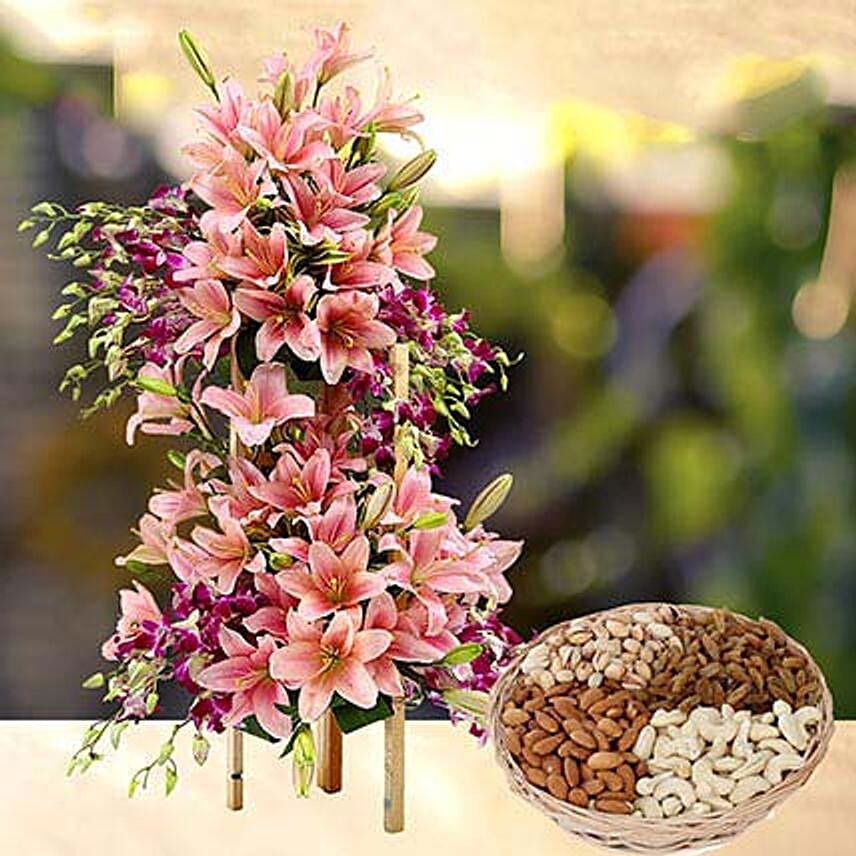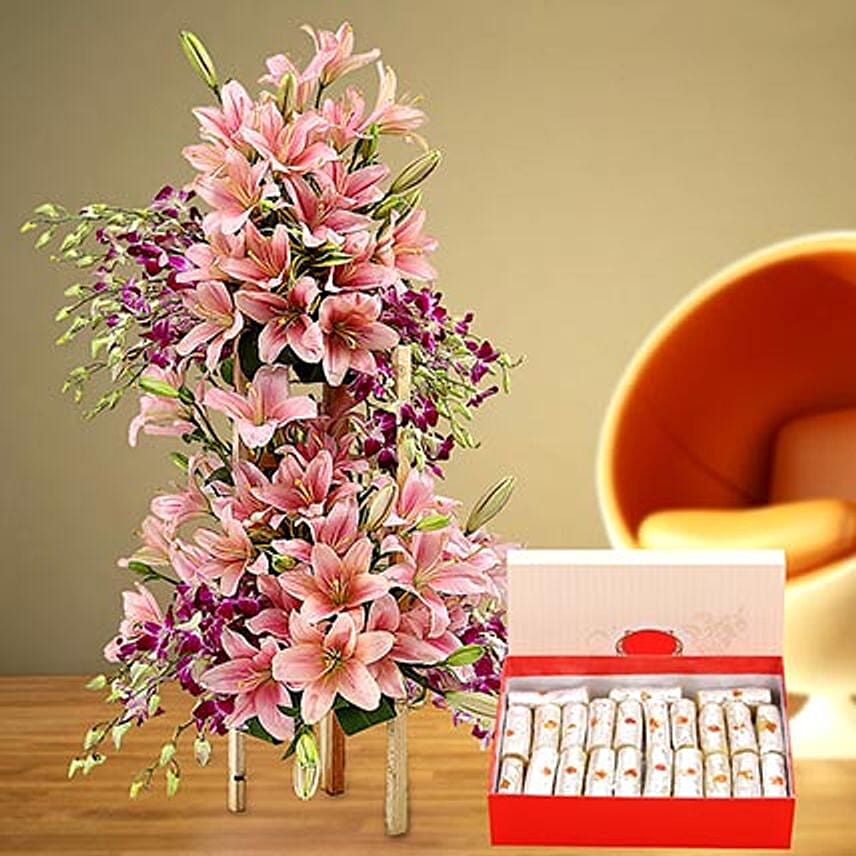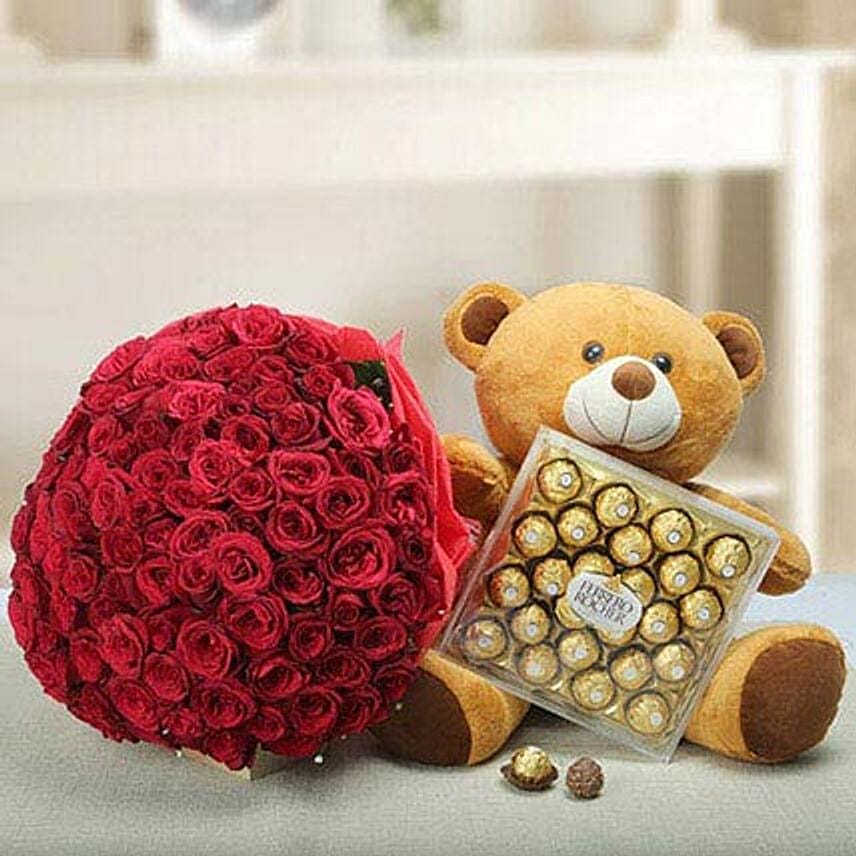How Karwa Chauth Is Celebrated?
The pooja of Lord Ganesha takes place on this day for the longevity and wellness of the husband. In some regions, there is also a tradition of the unmarried women to keep fast for their future husbands. A married woman worships Lord Shiva and his family in the evening before the moon rises. In some parts of India, there is also a ritual of offering Daan or Dakshina to the Brahmins on this day.
Rituals of Karwa Chauth:
The married women look forward to this day for the grand celebration of togetherness. The preparation generally starts weeks before the Karwa Chauth day as there are lots of shopping to be executed. Actually on this day the wife needs to be decked up just like the newly wed bride and that's why it is very important to buy a new garment and some jewelries every year. Cosmetics that include nail polish, lipstick, bindi, vermilion, henna, accessories like footwear, bangles, earrings, necklaces, etc. and puja items like thali, Karwa, and Karwa lamps are bought.
In most of the places women get up as early as 3-4 AM in the morning and take a bath and get into a new cloth and eat and drink something as they have to fast till moonrise. This task needs to be completed before the sunrise and once the sun rises one cannot eat or drink anything. In regions like Uttar Pradesh, the married women eat feni made with milk and sugar which keeps them full all through the day.
Those women who are pregnant can also perform this festival but for them there are special rituals like they can have milk, khoya, kheer, and fruits all through the fast. There is another ritual called Sargi in most parts of India. It is a collection of sweets, snacks, and decorative items which is a blessing from the mother-in-law to the daughter-in-law. The morning fenia or falooda or feni that the wife has to eat before the sunrise is generally prepared by the mother-in-law. And for the newly wed brides, they have to follow their mother-in-law. Suppose the mother-in-law instructs them to have some juice or tea during the fast, the daughter-in-law can follow this instruction for life.
Henna is one of the Sholah Shringars and women have to apply that on or before this day. Generally, it is instructed to decorate the hands and legs with Henna or Mehendi on the day. But women these days apply that a day before also. Henna is also applied on hair that gives a reddish brown color to the hair and is considered good for a healthy hair. Married women of a village, society, or locality gather at one place and exchange Karwa or clay pots filled with cosmetic or Shringar items like bangles, bindi, handkerchiefs, sweets, chocolates, etc. The parents or other elder family members also shower gifts on their daughters on this day.
Before the moonrise, the married women take another bath and get fully prepared for the festival. They wear the best make-up, jewelry, and garments. It is then followed by puja or worship of deities and they sing songs. In some parts, a priest or the oldest woman narrates the mythological or legendary stories of this festival and the others sit in circle to listen to these anecdotes. Without listening to these Vrat katha or stories, the Karwa Chauth is considered incomplete. The fast keeping women sing Karwa Chauth puja song by performing feris or passing their thalis to one another in the circle seven times.
Out of the seven feris, in the first six feris they sing songs like: "Veero kudiye Karwara, Sarv suhagan Karwara, Aye katti naya teri naa, Kumbh chrakhra feri naa, Aar pair payeen naa, Ruthda maniyen naa, Suthra jagayeen naa, Ve veero kuriye Karwara, Ve sarv suhagan Karwara". For the seventh feri, they sing: "Veero kudiye Karwara, Sarv suhagan Karwara, Aye katti naya teri nee, Kumbh chrakhra feri bhee, Aar pair payeen bhee, Ruthda maniyen bhee, Suthra jagayeen bhee, Ve veero kuriye Karwara, Ve sarv suhagan Karwara".
In Rajasthan, there is another ritual where a fasting woman is asked by another woman that "Dhapi ki Ni Dhapi?"(is she satiated or not?) to which the response is "Jal se Dhapi, Suhaag se na Dhapi" (I am satisfied by water not by husband). In Uttar Pradesh, there is a ritual of worshiping "gaur mata" or the earth. The married women have to take little soil, sprinkle water on it and place some kumkum over it and treat this as an idol referring to a fertile Mother, which is the Earth.
There is another song: "Sadaa suhagan karve lo, Pati ki pyari karve lo, Saat bhaiyon ke behen karve lo, Vart karni karve lo, Saas ki pyaari karve lo" while exchanging their Karwa thali with each other. After pooja is complete, they offer some Prasad (also called baayna) like halwa, puri, mathri, namkeen, sweets, meethi mathri, etc to the idols and then give their pooja thali to the mother-in-law or sister-in-law.
Now after the pooja ceremony, the women have to wait for the moon to rise so that they can break their fast. Once the moon is out in the sky, they generally go to the garden, lawn or terrace with their husbands to perform the ritual. They have to see the moon through a chhalni or sieve or have to see the moons reflection on the water filled vessel. Then they offer the argya to the moon to get the blessings and then see their husband's face through the sieve only. Then the husband offers some sweets and water from the puja thali to the wife and that's how the fast is broken. The wives can now have the full meal.
Celebration of First Karwa Chauth:
For any married woman, the first Karwa Chauth is of utmost importance. Both the husband and wives family see it as a special day for their daughter-in-law and daughter. Every family friends and relatives drop by to wish the newly-wed couple and the bride gets gifts from everyone. There is also a special gift showered by the husband to the wife. The first Sargi includes cosmetics, pre-dawn Karwa Chauth meal, and other things like dry fruits, mathri from the mother-in-law. The ritual of Baya is also prevalent in some rituals where the mother of the bride has to shower gifts to the mother-in-law and other family members of the bride. It consists of dry fruits, mathri, salted nuts, sweets, utensils, clothes, and also jewelry.
Karwa Chauth Gifts Ideas
- Personalisedkeyboard_arrow_right

- Flowerskeyboard_arrow_right
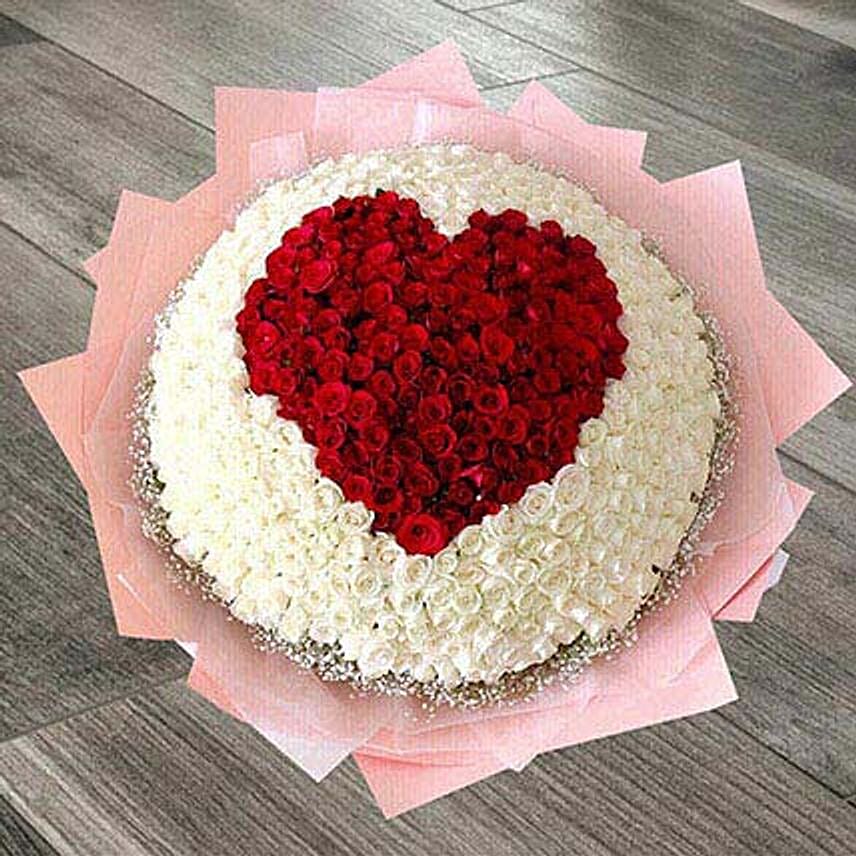
- Giftskeyboard_arrow_right
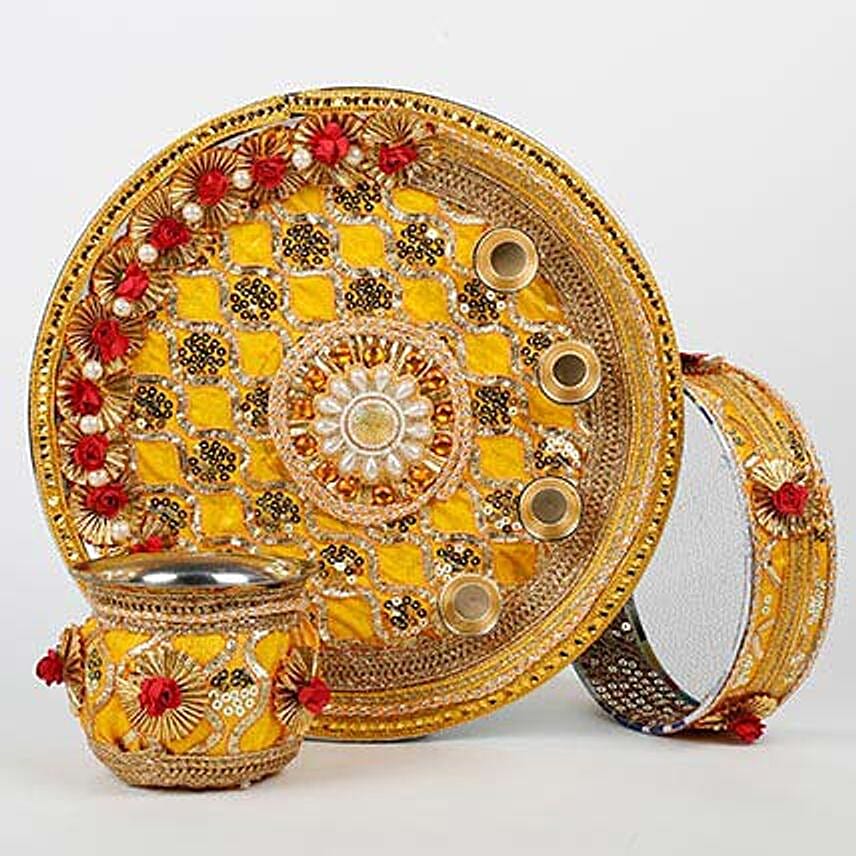
- Rose Teddykeyboard_arrow_right
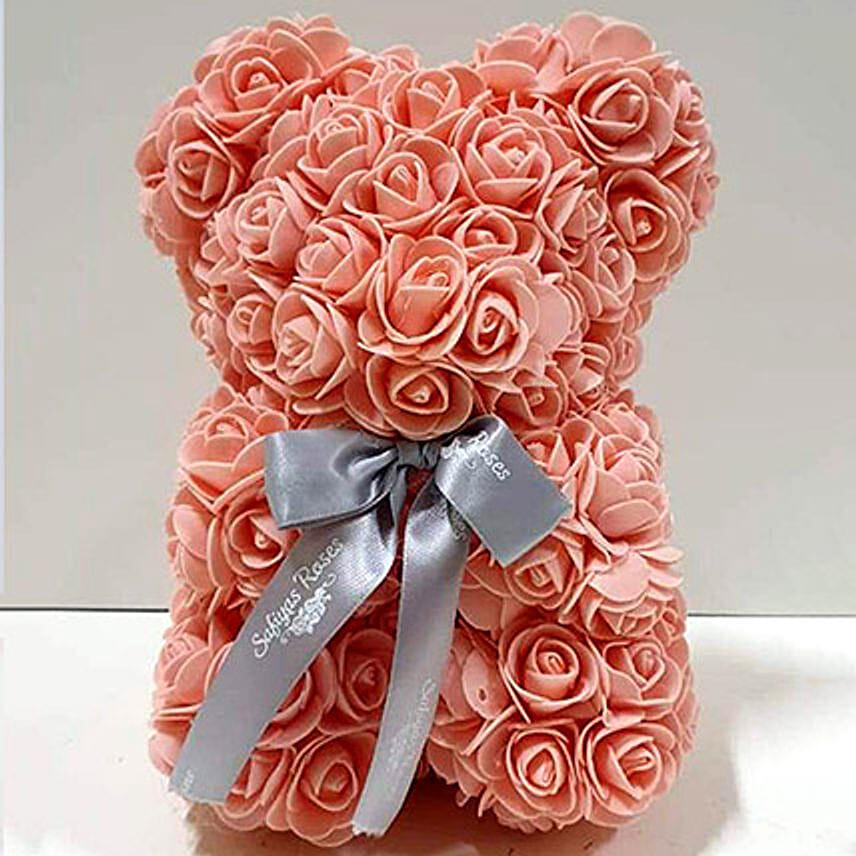
- Surpiseskeyboard_arrow_right

- Balloon Decorkeyboard_arrow_right
